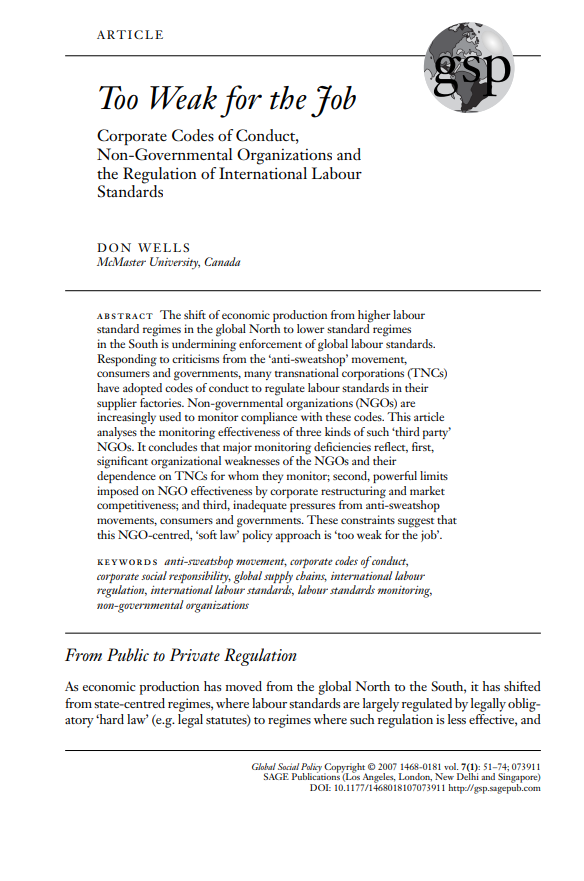The shift of economic production from higher labour standard regimes in the global North to lower standard regimes in the South is undermining enforcement of global labour standards. Responding to criticisms from the ‘anti-sweatshop’ movement, consumers and governments, many transnational corporations (TNCs) have adopted codes of conduct to regulate labour standards in their supplier factories. Non-governmental organizations (NGOs) are increasingly used to monitor compliance with these codes. This article analyses the monitoring effectiveness of three kinds of such ‘third party’ NGOs. It concludes that major monitoring deficiencies reflect, first, significant organizational weaknesses of the NGOs and their dependence on TNCs for whom they monitor; second, powerful limits imposed on NGO effectiveness by corporate restructuring and market competitiveness; and third, inadequate pressures from anti-sweatshop movements, consumers and governments. These constraints suggest that this NGO-centred, ‘soft law’ policy approach is ‘too weak for the job’.

